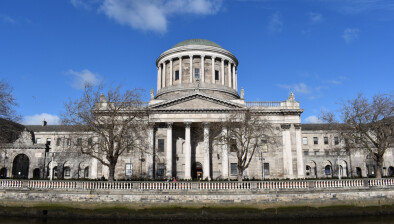Public bodies failing to comply with environmental information law

Ger Deering
Public bodies have been criticised for an “unacceptable” failure to comply with their obligations under Access to Information on the Environment (AIE) regulations.
Ger Deering, the commissioner for environmental information, said his office’s experience of reviewing decisions by public authorities on requests for environmental information showed a lack of understanding and engagement by some public authorities with AIE.
His office’s annual review for 2022 shows that just four of 129 decisions by public authorities (3.1 per cent) were upheld after going to a binding decision by his office.
The report also notes a significant increase in the number of ‘deemed refusals’, i.e. where a public authority failed to make a decision on an AIE request on time. This happened in 146 cases at the ‘initial decision’ stage, and in 164 cases at the ‘internal review’ stage.
Mr Deering called for greater engagement between public authorities and those requesting access to environmental information, and for public authorities to provide greater support and an increased priority for dealing with AIE requests where necessary.
Last year, 2022, saw the highest number of appeals ever made to the commissioner for environmental information with 369 cases received, an increase of 151 per cent on the previous year. The commissioner’s office also completed the highest number of cases in its history: 227, up from 83 in 2021.
In one case study featured in the report, An Bord Pleanála (ABP) refused a request under AIE regulations for information concerning plans for the resumption of public hearings into the Galway Ring Road.
In refusing the request, ABP said that the documents sought would be available on the public planning files after the planning decision had been made.
When the commissioner for environmental information discovered that a decision had been made on the planning application, he enquired if the documents were now publicly available. ABP said that the records requested were now in the public domain, but had not been sought by the requester.
ABP then informed the commissioner that the information withheld from the requester was not available publicly as it did not form part of the planning file. After five rounds of engagement with ABP, the commissioner found no basis for refusing access to the information and directed its release.








